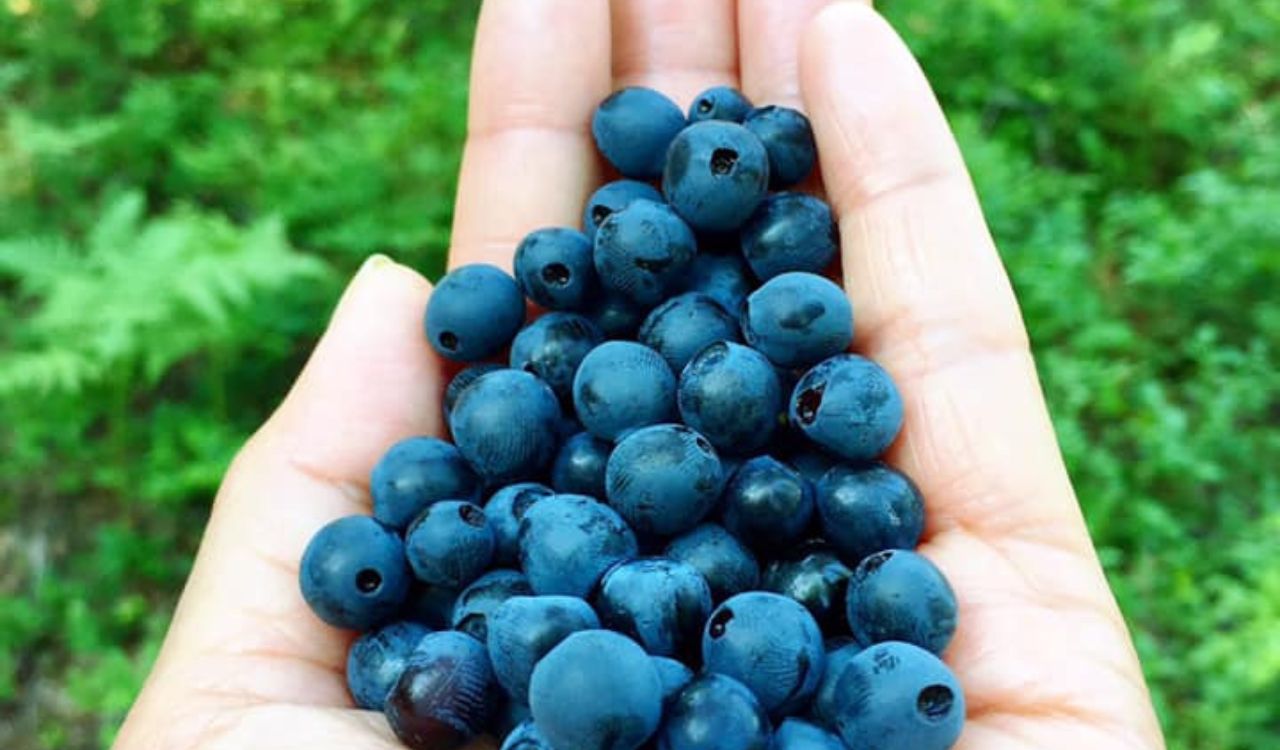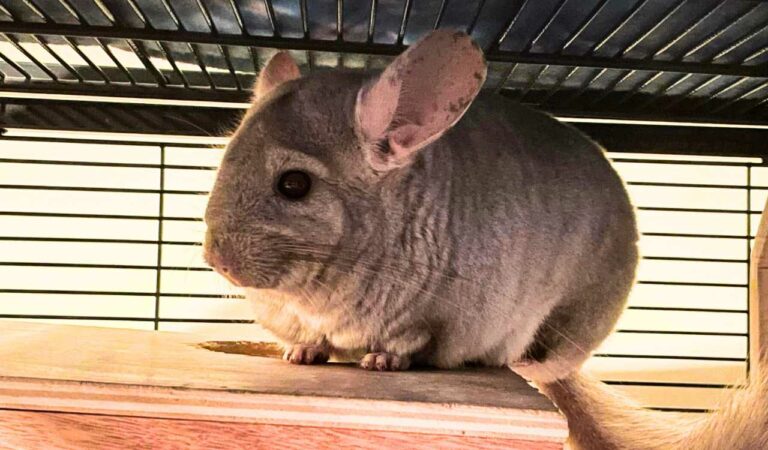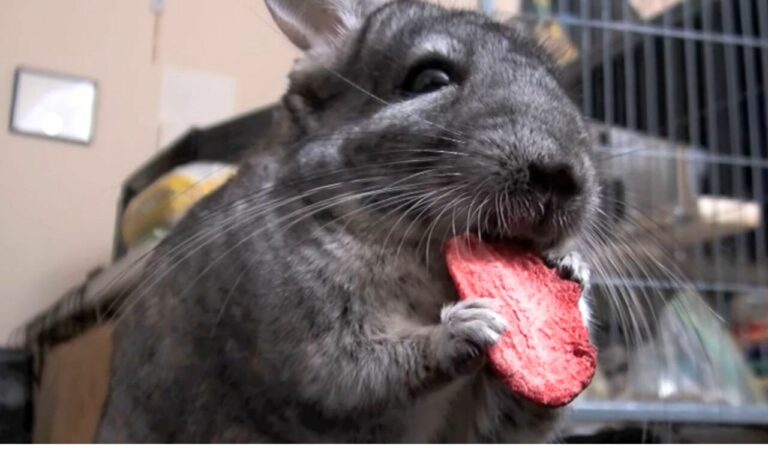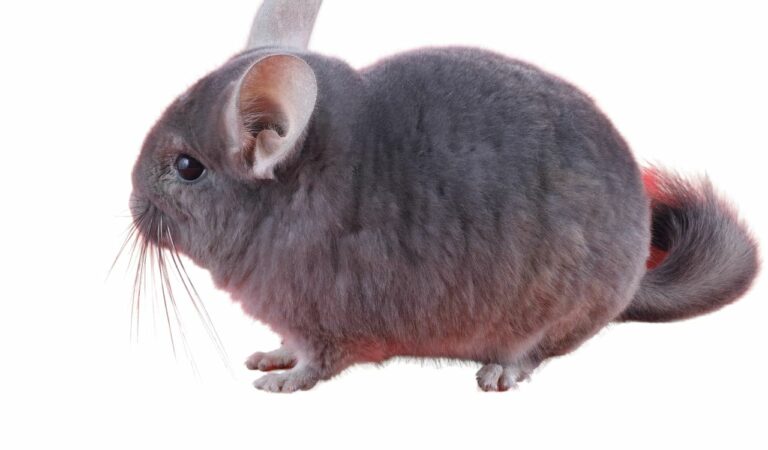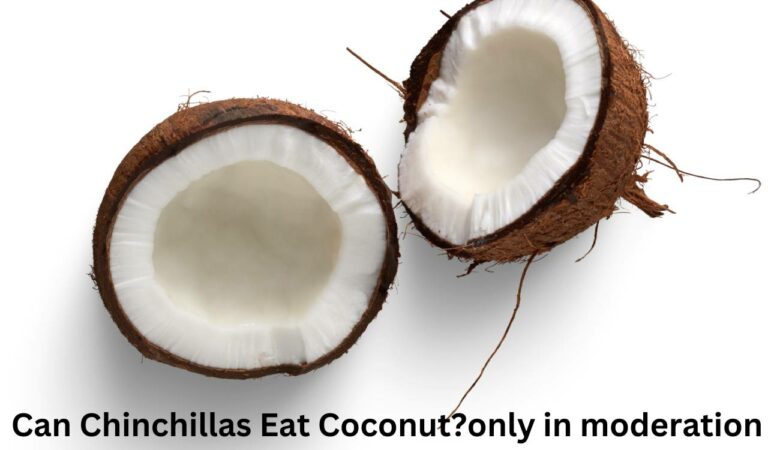Can Chinchillas Eat Blueberries? (Given In Moderation)
Blueberries are a tasty and nutritious fruit that many pet owners like to offer to their chinchillas. While chinchillas have a very specific diet, like hay and pellets, incorporating a small number of fresh fruits and vegetables can benefit their health.
But can chinchillas eat blueberries? Yes, chinchillas can eat blueberries, but they should only be given in moderation as a treat.
I’ll explore the facts about feeding your chinchillas blueberries and how much you should feed them. I will also discuss whether they are a safe and healthy treat for your furry friend.
Can Chinchillas Have Blueberries?
Yes, you can, but only in small amounts. Blueberries are a rich source of vitamins and antioxidants, which can provide some nutritional benefits for your pet.
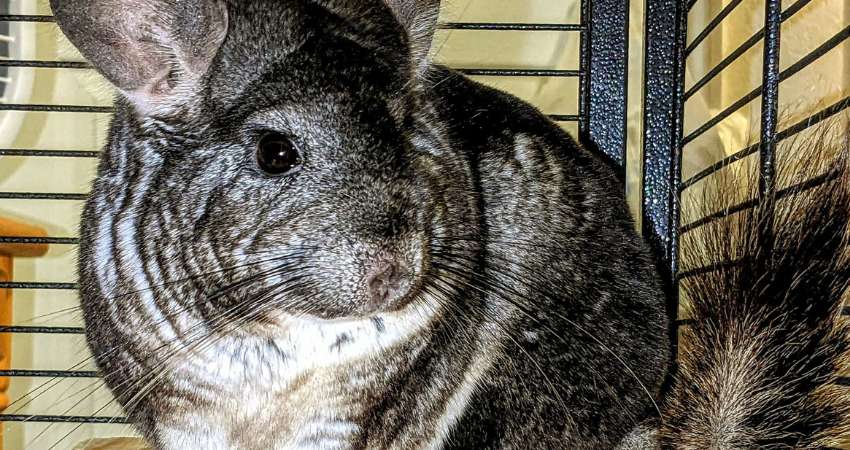
Blueberries are low in fat and calories, making them a good option for a treat or snack. However, it’s important to remember that chinchillas have sensitive digestive systems, and too much sugar harms their health. The sugar content of blueberries is not excessive compared to some water-contained fruits. It contains 15 grams of sugar per cup (148 grams) of blueberries.
Nutrition Content Of Blueberries
Blueberries are packed with vitamins and minerals that are essential for your pet chinchilla’s health. This includes vitamin C, vitamin K, vitamin E, folate, and potassium. They also contain antioxidants, which can help protect cells from damage.
Here’s a table that shows the nutritional facts of blueberries.
| Nutrient | Amount per 1 cup (148g) |
| Calories | 84 |
| Total Fat | 0.5 g |
| Sodium | 1 mg |
| Potassium | 114 mg |
| Total Carbohydrate | 21 g |
| Dietary Fiber | 4 g |
| Sugar | 15 g |
| Protein | 1 g |
| Vitamin A | 80 IU |
| Vitamin C | 24 mg |
| Calcium | 9 mg |
| Iron | 0.4 mg |
| Vitamin E | 0.6 mg |
| Vitamin K | 28.6 mcg |
But what about other berries? Can chinchillas eat raspberries? Like blueberries, raspberries are safe for chinchillas to eat in moderation. They are also rich in vitamins and antioxidants but contain less sugar than blueberries. Chinchillas can also enjoy strawberries, blackberries, and cranberries as part of their diet.

Though goji berries are gaining popularity among health-conscious individuals, can chinchillas eat goji berries? Yes. Chinchillas can enjoy goji berries as a treat since they are rich in vitamins, and antioxidants. It is advisable to feed them 1-2 goji berries every week.
Benefits of Blueberries to Chinchillas
Feeding blueberries to your chinchilla in moderation can provide several health benefits. Here are some of the benefits.
Rich in Vitamins and Minerals
They contain vitamin C, which helps boost the immune system and promote healthy skin and coat. Blueberries also contain vitamin K, which supports blood clotting and helps maintain healthy bones.
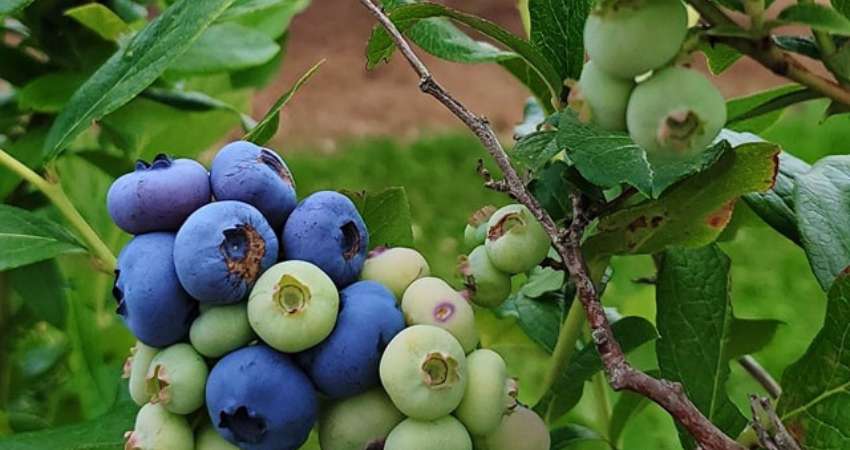
Antioxidant Properties
This is important for your chinchilla’s overall health and can help keep them healthy and active.
Low in Fat and Calories
This will help keep your chinchilla at a healthy weight to prevent obesity-related health problems.
Promotes Digestive Health
Dietary fiber helps regulate bowel movements, prevent constipation, and maintain a healthy gut microbiome.
Provides Mental Stimulation
Feeding your chinchilla blueberries can provide mental stimulation and enrichment, as they enjoy exploring and foraging for their food.
While blueberries are a healthy treat option, it’s crucial to remember that they should only be given as an occasional treat, not as a regular part of your chinchilla’s diet. Hay and pellets should make up the majority of their diet, with occasional treats such as fruits and vegetables to provide some variety.
How To Serve Blueberries To Chinchillas
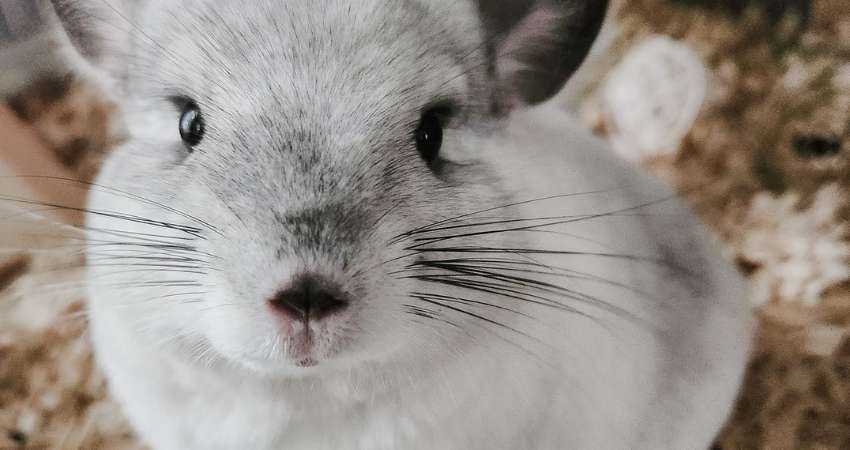
- Always wash blueberries thoroughly before feeding them to your chinchilla.
- Introduce blueberries gradually into your chinchilla’s diet to avoid digestive problems.
- Feed blueberries as an occasional treat rather than a regular part of your chinchilla’s diet.
- Stick to small quantities of blueberries at a time, around 1-2 blueberries per week.
- Watch out for any signs of allergic reactions or digestive problems after feeding blueberries to your chinchilla.
- Consider offering alternative fruits to provide variety in your chinchilla’s diet, such as raspberries or goji berries.
- Consult with a veterinarian or a chinchilla care expert if you have any concerns about feeding blueberries to your chinchilla.
How Many Blueberries Can Chinchillas Eat?
It’s recommended that one or two blueberries once or twice a week be served to your chinchilla. Remember, chinchillas have sensitive digestive systems, and overfeeding them can lead to health problems.
Risks of OverFeeding Chinchillas Blueberries
While blueberries can be a healthy and nutritious treat for chinchillas, it’s important to be aware of the potential risks. Here are some of the risks of feeding blueberries to chinchillas.
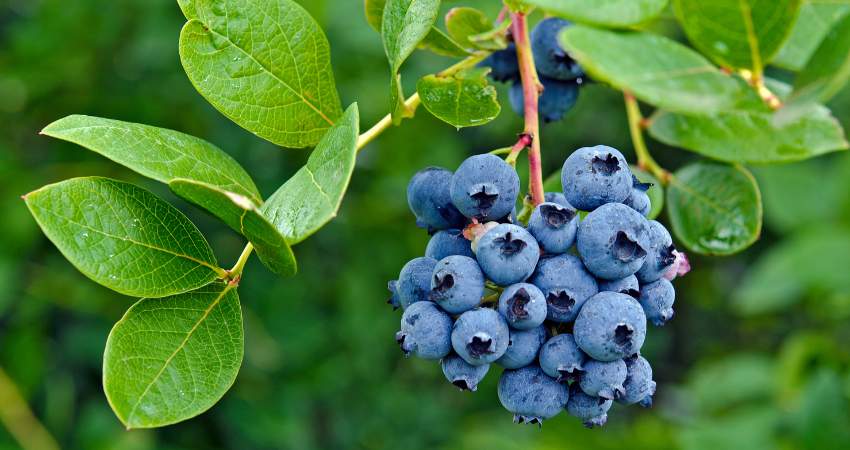
High Sugar Content
Blueberries are relatively high in sugar compared to other fruits and vegetables. Excessive consumption leads to health problems in chinchillas, such as obesity, tooth decay, and gastrointestinal issues. Additionally, the acidic nature of blueberries can also cause dental problems for chinchillas overtime2
Choking Hazard
Blueberries are small and round, which can make them a choking hazard for chinchillas. Make sure to cut the blueberries into small pieces or crush them before feeding them to your chinchilla to reduce the risk of choking.
Allergic Reactions
While blueberries are not a common allergen, your chinchilla may have an adverse reaction to them. Watch for signs of an allergic reaction, such as hives, swelling, or difficulty breathing, and seek veterinary attention if necessary.
Digestive Issues
Chinchillas have delicate digestive systems, and sudden changes in their diet can cause gastrointestinal issues. Introducing blueberries to your chinchilla’s diet too quickly or in large quantities can lead to digestive problems such as diarrhea or constipation.
Can Chinchillas Eat Frozen Blueberries?
An important consideration is the form in which you give blueberries to your chinchilla. While fresh blueberries are a great option, you may be wondering about frozen or dried blueberries.
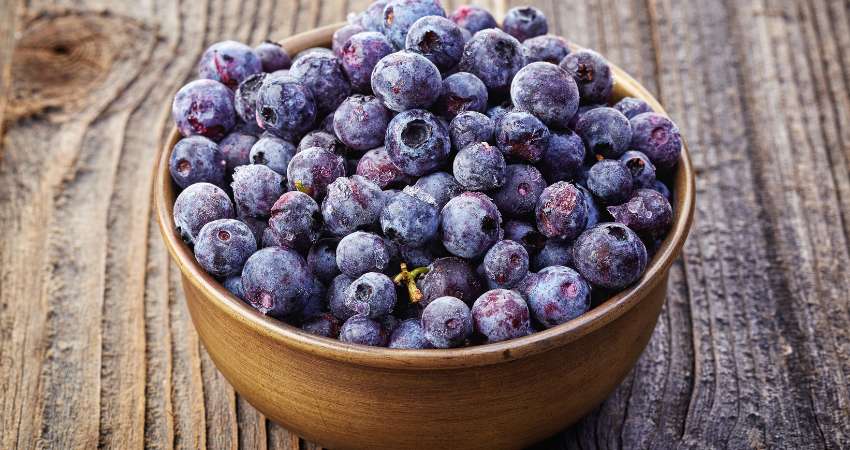
Thus, can chinchillas eat frozen blueberries? Yes, chinchillas can eat frozen blueberries, but it’s important to thaw them before feeding to avoid any digestive issues. Frozen blueberries can be a healthy alternative to fresh ones, and they can provide some mental stimulation for your pet.
Can Chinchillas Have Dried Blueberries?
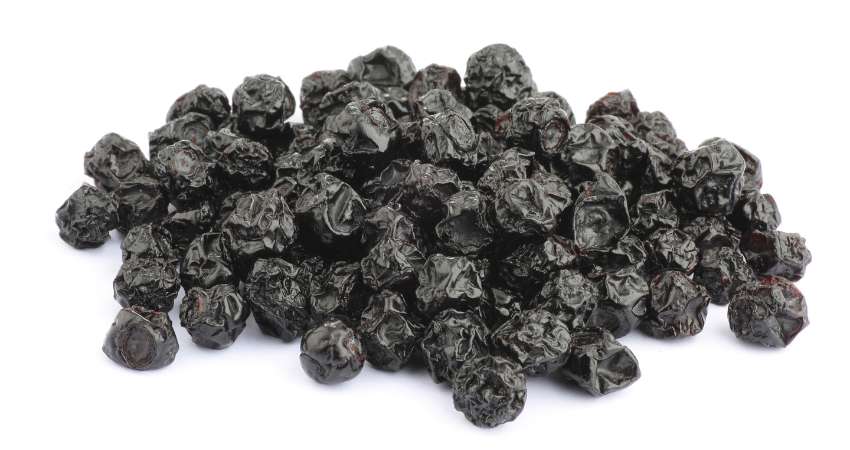
While dried blueberries may seem like a convenient option, they are high in sugar and should be avoided. Dried fruits often have added sugars and preservatives that can be harmful to chinchillas. It’s best to stick with fresh or frozen fruits as treats for your chinchilla.
In The End
Blueberries are a healthy addition to a chinchilla’s diet when given in moderation. They contain vitamins, antioxidants, and fiber that can benefit a chinchilla’s overall health. However, it is important to be mindful of the sugar content and potential digestive issues that may arise.
Other fruits such as raspberries and goji berries can also be suitable treats for chinchillas. As always, consult with a veterinarian before making any changes to your chinchilla’s diet. For more information on chinchilla care and diet, refer to reputable sources such as chinchilla-specific forums and veterinary websites.
